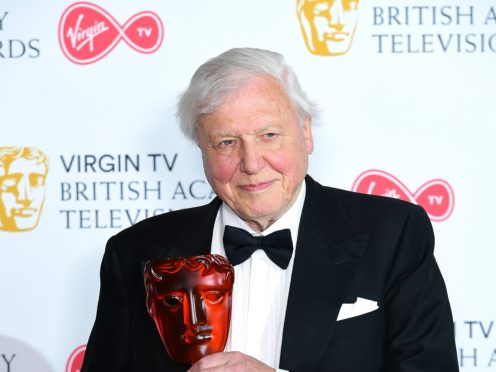Sir David Attenborough says he still has “hope” for the future of the planet.
But the Blue Planet and Dynasties narrator says that human beings have to turn their gaze away from themselves.
The naturalist and broadcaster, 92, was asked whether society would exist on Earth in just a few hundred years.
A story of power, politics and the fight for survival. We've been waiting a whole year to hear Sir David Attenborough's narration again. You'll want sound on! 🔊 #Dynastiespic.twitter.com/5Nqr1T0P8d
— BBC One (@BBCOne) November 9, 2018
“I don’t think it will be uninhabitable,” he tells The Arts Hour.
“Almost certainly it won’t be as rich as it was. The question is, how poor will it be. ”
Sir David tells the BBC World Service programme: “Human beings are the most adaptable organism that has ever appeared on the planet and is extraordinarily resourceful, and very good at looking after itself.
“If it turns its attentions to looking after other things as well, which it is equally good at, if it bothers to do so, then there is hope.”
Say hello to the bobbit – a metre-long worm with jaws as sharp as daggers#BluePlanet2 pic.twitter.com/Oj8oYLdQSM
— BBC Earth (@BBCEarth) November 12, 2017
But he adds: “I think it’s unlikely that my great grandchildren will ever see what I was able to see when I was wondering around the Earth in Borneo or wherever else 50 years ago.”
The much-loved broadcaster said that children’s innate curiosity was a “precious treasure”.
“There is not a child born that, if it sees a snail for the first time crawling up a window pane, doesn’t think, what on earth is that? How does it stick on? What does it feed on? Look at the underside… What is it doing?
“Of course every child born is born with a curiosity for the natural world. If you lose that thing that you started off with, you’ve lost really one of the most precious treasures you have. Your life is the poorer.”
And he says: “The paradox is, that we may be the most overcrowded people that have ever lived in history but in fact we get a wider view of the world than ever before.
“The world now on television is viewed all the time.”
The Arts Hour with Sir David Attenborough airs on January 5 at 8pm on the BBC World Service.
